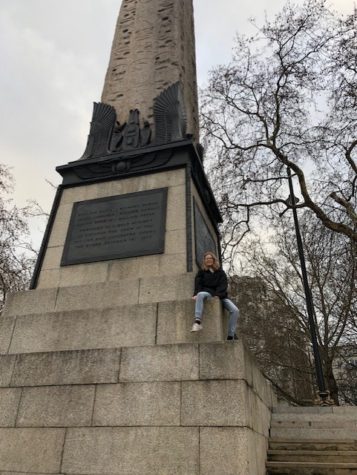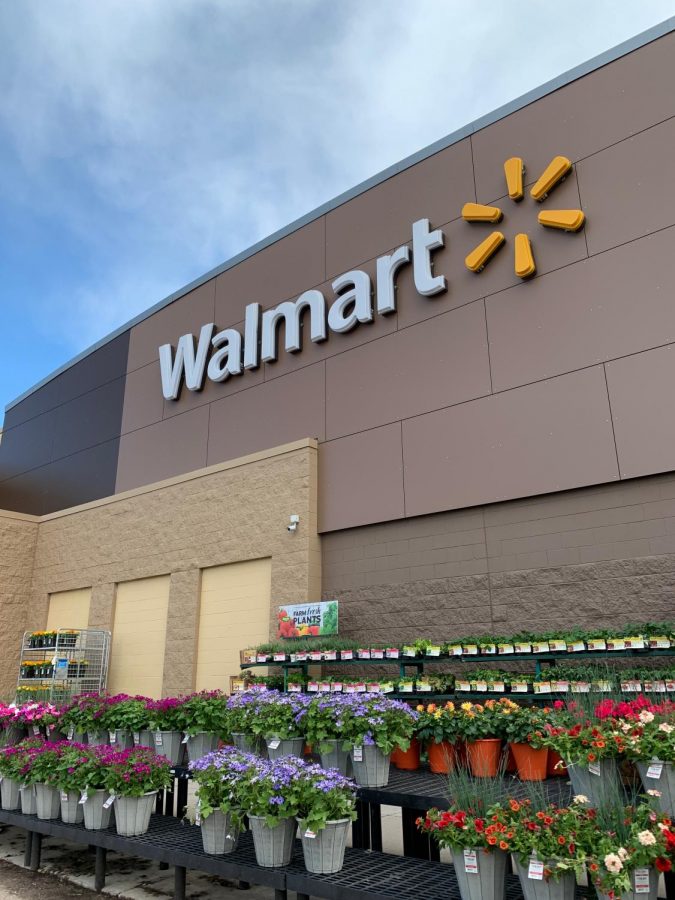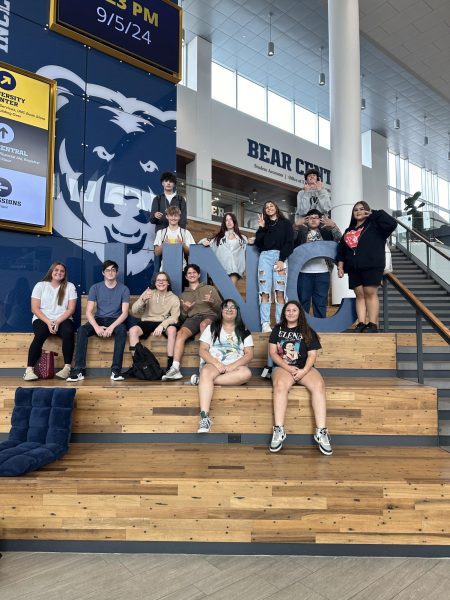The Dilemma of High School Students as Essential Workers
Working in food service jobs is an attractive prospect to young adults, but now they are at risk for getting coronavirus.
Students often work minimum wage part-time jobs at places like Walmart. Walmart has hired 150,000 new employees to keep up with demand for groceries and other products during the pandemic.
According to the U.S, Bureau of Labor Statistics, five million people aged 16-19 had jobs in 2019; 1.7 million teenagers were working restaurant jobs, the highest level since 2007. Working in the food service industry makes sense for teenagers–an entry level job with flexible hours. With the spread of coronavirus, young adults in essential jobs are now forced to chose between their jobs and their health.
“Honestly not much has changed since the whole stay at home order went into effect. They’ve been stressing the six-foot rule and having us disinfect the registers a lot more, but other than that, we haven’t received much in terms of protective measures,” Claudia Betten said. Betten is a cashier at Walmart and a junior at Rocky.
She said that the vinyl gloves now worn by the employees are intended for the janitors or for a medical issue like an open cut. Employees bring masks from home.
“About 15 minutes after the public texts went out, we got absolutely slammed. I’ve never seen more people in the store–not even on Black Friday,” Betten said.
Betten said that since the public stay at home order went out on March 26, there have been very few shoppers. “The only problem is now when people go shopping they stock up on almost everything; we run out of toilet paper, hand sanitizer, paper towels–even meat and milk–within an hour of getting our trucks.”
“It’s been an overall pretty crazy experience, but I’m just glad to still have a job,” Betten said. “I have to pay for college somehow.”
“Some customers have started to act a bit ruder,” Jackson Sutherland, a King Soopers employee, said. “And they now come in waves, as opposed to the natural flow from before.”
“Honestly, the only thing making me keep my job is the difficulty there would be in finding another once this is all over,” Sutherland said. “The hazard pay is nice, but it’s only two extra dollars. I’ve been on leave for a bit thanks to some sickness in my immediate family. I’m hopeful that once I get back, we won’t be so understaffed as before, but it’s understandable that not many people want to work in times like these.”
More local businesses have also been affected by the COVID crisis. Erin Hutcheson, who works at Gib’s Bagels, says that the restaurant has only kept employees who need their jobs for rent.
“I’m really lucky to have a job and still get money,” Hutcheson said. “But every time I go to work I get scared about getting it.” Hutcheson said her roommate used to have asthma, and she worries about spreading the virus to him.
In the case of people like Hutcheson’s roommate, the CDC advises that people with asthma have an increased likelihood of developing complications from COVID-19. The virus can also be deadly to immunocompromised young adults, who make up an increasing portion of the United States’ population.
In 2013, the Infectious Diseases Society of America (IDSA) found that 1.6% of adults ages 18-39 were considered immunocompromised. According to the IDSA, this number is growing due to an increased understanding of the immune system in medical care prompting more treatments requiring suppressing the immune system. These treatments can be life saving, but can put patients at a higher risk for complications when they get sick with illnesses like COVID-19.
Dylan Lindsey works for a company that is now aiming to help healthcare workers. Lindsey works for ThermalStrike, a heating company owned by his father that has expanded it’s product line to decontaminate surgical and N95 masks. Lindsey said he has been involved in the company since it’s founding, but was inspired to help when the COVID-19 crisis began.
“He just really needed help,” Lindsey said. “I have always wanted to make a positive change on the world and really struggled just sitting at home.” He is now making deliveries to places like UC Health, Associates in Family Medicine, and Columbine Health Systems.
“My teachers are all aware of what I’m doing,” Lindsey said when asked about how his involvement in the company affects school. Lindsey works three to four days a week managing aspects like manufacturing, delivery and logistics with the remainder being reserved for schoolwork. “I am definitely having to cram everything in. I emailed my teachers asking for flexibility and they have all been super helpful and supportive. My deepest gratitude goes out to all of them.”
As the COVID crisis continues, young adults in essential jobs are forced to choose between their income and safety. The importance of keeping lower-income workers healthy is now more apparent than ever.

Payton is a senior at Rocky Mountain High School. They've been on the newspaper staff for 3 years. After high school, Payton wants to work as an investigative...

Amy White is adviser of The Highlighter. She taught yearbook and newspaper at Mountain View High School prior to arriving at Rocky in 2013. She is originally...











della fisher • Sep 3, 2020 at 11:18 am
Great quotes it really allowed you to understand what the workers were thinking in the moment.
Payton • Sep 1, 2020 at 5:14 pm
Wow a lot of search went into this one! I personally think that’s anyone can be an essential worker especially during a pandemic.
Laylah • Aug 24, 2020 at 8:55 pm
I really like how many quotes and how much research was done for this article. The topic is very interesting and very true for my family too.